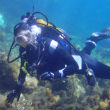Affiliated Faculty and Staff
Norris Center affiliates contribute to the Norris Center and to understanding natural history through their academic, professional, or volunteer work. We define natural history broadly as the practice of direct observation and interpretation of the natural world through science, writing, art, or other modalities. Affiliates support the Norris Center in one or more of the following ways:
- Participating in specimen collection or curation, and/or research projects directly related to the Norris Center and its collections.
- Mentoring undergraduate or graduate students who are doing academic projects involving the Norris Center.
- Using the Norris Center collections for art, research or teaching on periodic basis.
- Writing or collaborating on grants with the Norris Center.
- Being available for career advising and professional development seminars for Norris Center students.
- Giving workshops or lectures for the Norris Center. Example workshops may include but are not limited to the following topics: ecological field methods, designing long-term field studies, experimental design, grantsmanship, art, ethnography, and science communication.
- Representing the Norris Center to outside institutions or groups, for example at events held by the California Academy of Sciences, Santa Cruz Museum of Natural History, State Parks, UC Natural Reserves, etc.
If you would like to be listed as an affiliate, send an email to norriscenter@ucsc.edu.
 Jenny Anderson Retired Lecturer, Environmental Studies jka@cruzio.com
Jenny Anderson Retired Lecturer, Environmental Studies jka@cruzio.com
Currently serving on the Norris Center Executive Committee. Jenny participates in natural history through birding and hiking and sharing and learning with others. Jenny started the Quail Hollow Nestbox Program with Tonya Haff, is part of the Golden-crowned Sparrow research team up at the Arboretum, and is now helping with banding for the Natural Reserves folks down at Younger Lagoon.
Suzanne Alonzo Professor, Ecology and Evolutionary Biology shalonzo@ucsc.edu
I study the evolution and ecology of fish reproduction (mainly in the Mediterranean Ocean) and teach classes on evolution and animal behavior at UC Santa Cruz.
 Krikor Andonian Lecturer, Ecology and Evolutionary Biology kkandonia@ucsc.edu
Krikor Andonian Lecturer, Ecology and Evolutionary Biology kkandonia@ucsc.edu
I am a plant community ecologist and especially interested in the interactions among plants, soil microbes, and invasive species. I teach courses in ecology, evolution, physiology, environmental science, and California natural history and conservation. Website
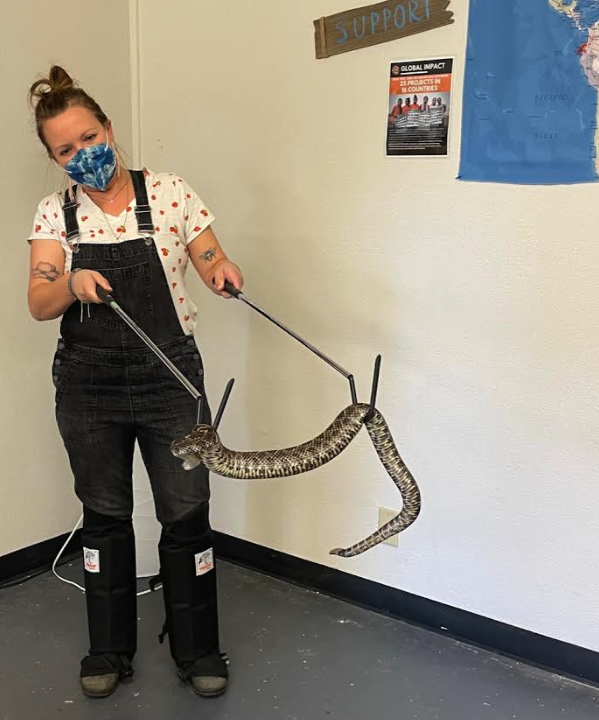 Lily Balloffet Associate Professor, Latin American & Latino Studies lballoff@ucsc.edu
Lily Balloffet Associate Professor, Latin American & Latino Studies lballoff@ucsc.edu
I'm a historian of global connections and mobilities, and I use this approach to study humans and animals in the American hemisphere. I am currently researching several species of venomous snakes for a project that bridges natural history, public health, inter-American relations and agricultural history. Website.
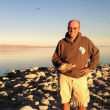 Giacomo Bernardi Professor, Ecology and Evolutionary Biology bernardi@ucsc.edu
Giacomo Bernardi Professor, Ecology and Evolutionary Biology bernardi@ucsc.edu
I am an ichthyologist that works on fish population genetics and phylogenomics. I work in tropical coral reefs, temperate reefs in California, the Tropical Eastern Pacific and Baja California. I also work on invasive fish species in the Mediterranean. Website
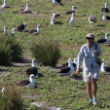 Martha Brown Retired Principal Editor, Center for Argoecology and Sustainable Food Systems mtbrown@ucsc.edu
Martha Brown Retired Principal Editor, Center for Argoecology and Sustainable Food Systems mtbrown@ucsc.edu
I write about natural history topics for a variety of
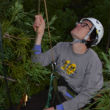 Elliott Campbell Associate Professor, Environmental Studies elliott.campbell@ucsc.edu
Elliott Campbell Associate Professor, Environmental Studies elliott.campbell@ucsc.edu
Stephen R. Gliessman Presidential Chain in Water Resources and Food System Sustainability. Website
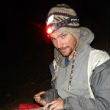 Ryan Carle Lecturer, Environmental Studies ryan@oikonos.org
Ryan Carle Lecturer, Environmental Studies ryan@oikonos.org
I study seabirds with the non-profit Oikonos and teach natural history classes through the Norris Center. Website
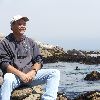 Mark Carr Professor, Ecology and Evolutionary Biology mhcarr@ucsc.edu
Mark Carr Professor, Ecology and Evolutionary Biology mhcarr@ucsc.edu
I study the basic and applied ecology of coastal marine ecosystems, especially kelp forests, and teach classes on marine ecology at UC Santa Cruz. Website
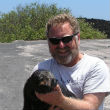 Daniel P. Costa Professor, Ecology and Evolutionary Biology costa@ucsc.edu
Daniel P. Costa Professor, Ecology and Evolutionary Biology costa@ucsc.edu
I study the natural history of marine mammals and seabirds. With a special focus on movement patterns, foraging ecology and diving physiology. I teach a course on the Biology of Marine Mammals, as well as a course on Field methods on large marine vertebrates. Website
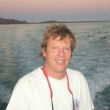 Don Croll Professor, Ecology and Evolutionary Biology dcroll@ucsc.edu
Don Croll Professor, Ecology and Evolutionary Biology dcroll@ucsc.edu
He has conducted conservation research on island ecosystems and marine vertebrates for over 30 years, and his work has helped inform a wide range of coastal and marine conservation issues including seabird sea turtle, and marine mammal conservation, fisheries management, and island restoration. He teaches field-based student research courses across the UC Natural Reserve system and Baja California. Website
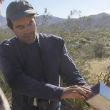 Gage Dayton Director, UCSC Natural Reserves ghdayton@ucsc.edu
Gage Dayton Director, UCSC Natural Reserves ghdayton@ucsc.edu
I have a broad background in teaching and have taught courses in general biology, herpetology,
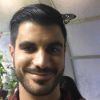 Andrew Gottscho Adjunct Faculty, Merritt College andrew.gottscho@gmail.com
Andrew Gottscho Adjunct Faculty, Merritt College andrew.gottscho@gmail.com
My research is focused on the evolution, taxonomy and phylogeography of phrynosomatid lizards in the deserts of southwestern North America and Mexico. I also teach a field-based hereptology class at Merritt College in Oakland, CA. Website
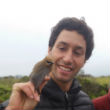 Darrow Feldstein Bird School Project darrow.feldstein@gmail.com
Darrow Feldstein Bird School Project darrow.feldstein@gmail.com
I teach young people about birds and local habitats. I have worked as a bird and plant biologist in Yosemite National Park and I believe in the power of nature connection as a way to help people become their best selves. Website
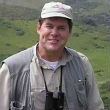
Lawrence D. Ford LD Ford Rangeland Science fordld@sbcglobal.net
The foundation of my professional work is natural history, the continual observation and re-examination of ecosystem components and processes, and assessment of management options to maintain biodiversity. My focus is on California’s Mediterranean grasslands, grazing management to benefit special status species and natural communities, rancher sustainability and stewardship, and the scholarly applications of science. I design and manage conservation projects involving grazing, including research, assessments, strategic planning, monitoring, and adaptive management.
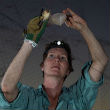 Winifred F. Frick Assistant Adjunct Professor, Ecology and Evolutionary Biology wfrick@batcon.org
Winifred F. Frick Assistant Adjunct Professor, Ecology and Evolutionary Biology wfrick@batcon.org
I work on conservation of bats around the world. I use natural history to observe and understand species and their threats. Website
 Greg Gilbert Professor, Environmental Studies ggilbert@ucsc.edu
Greg Gilbert Professor, Environmental Studies ggilbert@ucsc.edu
I study plant pathology, trees, fungi, and inquiry-based education, both globally, and here on the campus of UCSC. I use molecular tools, archival research, field experiments, narrative analysis, computer models, art, long-term monitoring, meta-analysis, and other approaches to answer questions that help solve important environmental problems. I also run the 16-hectare long term forest monitoring project called the FERP on Upper Campus. Website
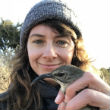
I facilitate teaching, research, public education, and native habitat restoration outside at Younger Lagoon Reserve. I am also a graduate student in the Ecology and Evolutionary Biology department where I study the longer-term success of native habitat restoration. Website
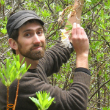 Alex Jones Manager, UCSC Campus Natural Reserve asjones@ucsc.edu
Alex Jones Manager, UCSC Campus Natural Reserve asjones@ucsc.edu
I support undergraduate, graduate and faculty involvement in education, research
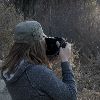
Karolina Karlic Associate Professor, Art Department kkarlic@ucsc.edu
I am the founder of Unseen California, an arts visual platform that aims to build upon and extend faculty led arts research, education and student work in outdoor California classroom laboratories across the UC Natural Reserve System through an interdisciplinary arts approach to visualizing the environmental and social concerns of California Landscapes of the 21st Century. This visual platform serves as a centralizing information hub for arts+science+humanities research to provide a place to share artist projects that emerge from our collaborations with the UC Natural Reserves and to highlight our educational mission. Website
 Kathleen Kay Associate Professor, Ecology and Evolutionary Biology kmkay@ucsc.edu
Kathleen Kay Associate Professor, Ecology and Evolutionary Biology kmkay@ucsc.edu
I study the evolutionary ecology, evolutionary genetics, and natural history of terrestrial plants in California and Central and South America. I teach classes on Evolution and Systematic Botany. I teach my students how to use and contribute to herbaria. Website
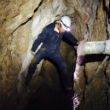 A. Marm Kilpatrick Associate Professor, Ecology and Evolutionary Biology akilpatr@ucsc.edu
A. Marm Kilpatrick Associate Professor, Ecology and Evolutionary Biology akilpatr@ucsc.edu
I study and teach classes about the natural history of populations and diseases, including mosquitoes, ticks, bats, birds, viruses, bacteria, and protozoa. Website
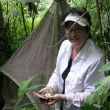 Deborah Letourneau Professor Emeritus, Environmental Studies dletour@ucsc.edu
Deborah Letourneau Professor Emeritus, Environmental Studies dletour@ucsc.edu
I am an ecologist, teaching and conducting research on insect-plant interactions within food webs in tropical rainforests, CA redwood forests and on organic farms.
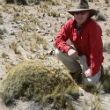 Michael E. Loik Professor, Environmental Studies mloik@ucsc.edu
Michael E. Loik Professor, Environmental Studies mloik@ucsc.edu
I am interested in the natural history of cacti. If there is a cactus nearby, I will know about it. I have stopped
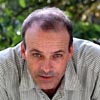
Bruce Lyon Professor, Ecology and Evolutionary Biology belyon@ucsc.edu
I am interested in how birds behave, and interact with one another affects their evolution and ecology. In particular I study the natural history of bird coloration, nest parasitism, mating systems, and parental care. Website
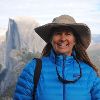 Stephanie Martin Retired educator martins4@cruzio.com
Stephanie Martin Retired educator martins4@cruzio.com
After many years of sharing natural history with children in my elementary school classroom, I now work full-time as an artist, primarily making etchings of California's plants and birds. Field observations, sketches, along with museum collections, are key to my work. Website
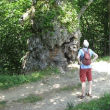 Andrew S. Mathews Associate Professor, Anthropology amathews@ucsc.edu
Andrew S. Mathews Associate Professor, Anthropology amathews@ucsc.edu
I use natural history methods and drawings in my research on anthropogenic forest landscapes in Italy. I teach my students to use natural history methods on the UCSC campus, as a way of attending to history and ecological relations. Website
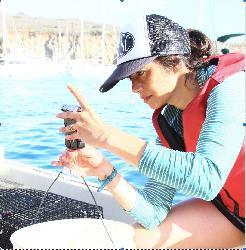 Rita Mehta Professor, Ecology and Evolutionary Biology rmehta2@ucsc.edu
Rita Mehta Professor, Ecology and Evolutionary Biology rmehta2@ucsc.edu
I study the natural history, ecomorphology, physiology, and evolution of ectotherms. I teach courses in comparative vertebrate anatomy and comparative physiology. Please check out my website for more information about my interests and those of my lab group. Website
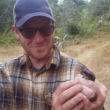
Joe Miller Field Manager, UCSC Fort Ord Natural Reserve joemiller@ucsc.edu
I facilitate research and education in Maritime Chaparral habitat at UCSC Fort Ord Natural Reserve in Marina, CA. I oversee mammal monitoring by camera and trap, bird banding and observation, plant survey, herpetology monitoring, and stewardship with Monterey Bay area students. Website
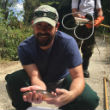 Eric Palkovacs Professor, Ecology and Evolutionary Biology epalkova@ucsc.edu
Eric Palkovacs Professor, Ecology and Evolutionary Biology epalkova@ucsc.edu
I study the natural history, ecology, and evolution of freshwater and anadromous (sea-run) fishes. I teach courses in freshwater ecology and eco-evolutionary dynamics. Website
 Ingrid Parker Professor, Ecology and Evoluationary Biology imparker@ucsc.edu
Ingrid Parker Professor, Ecology and Evoluationary Biology imparker@ucsc.edu
I am an evolutionary ecologist who studies interactions between plants and pathogens, plants and pollinators, and plants and mycorrhizae. I work on the ecology and control of plant invaders and the conservation of endangered species. Website
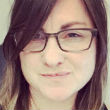 Jennifer Parker Professor, Art and Digital Art & New Media parker1@ucsc.edu
Jennifer Parker Professor, Art and Digital Art & New Media parker1@ucsc.edu
Directed the Mechatronics collaborative research cohort from 2009-2015 developing research projects that combine art, design, science
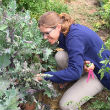 Stacy Philpott Professor, Environmental Studies Department sphilpot@ucsc.edu
Stacy Philpott Professor, Environmental Studies Department sphilpot@ucsc.edu
I study and teach classes about insect ecology and am interested in local and landscape drivers of arthropod diversity in tropical and urban ecosystems. Website
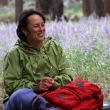 Sarah Rabkin Lecturer, Environmental Studies srabkin57@gmail.com
Sarah Rabkin Lecturer, Environmental Studies srabkin57@gmail.com
I lead writing-based workshops & retreats that emphasize careful attentiveness to the larger-than-human world. Website
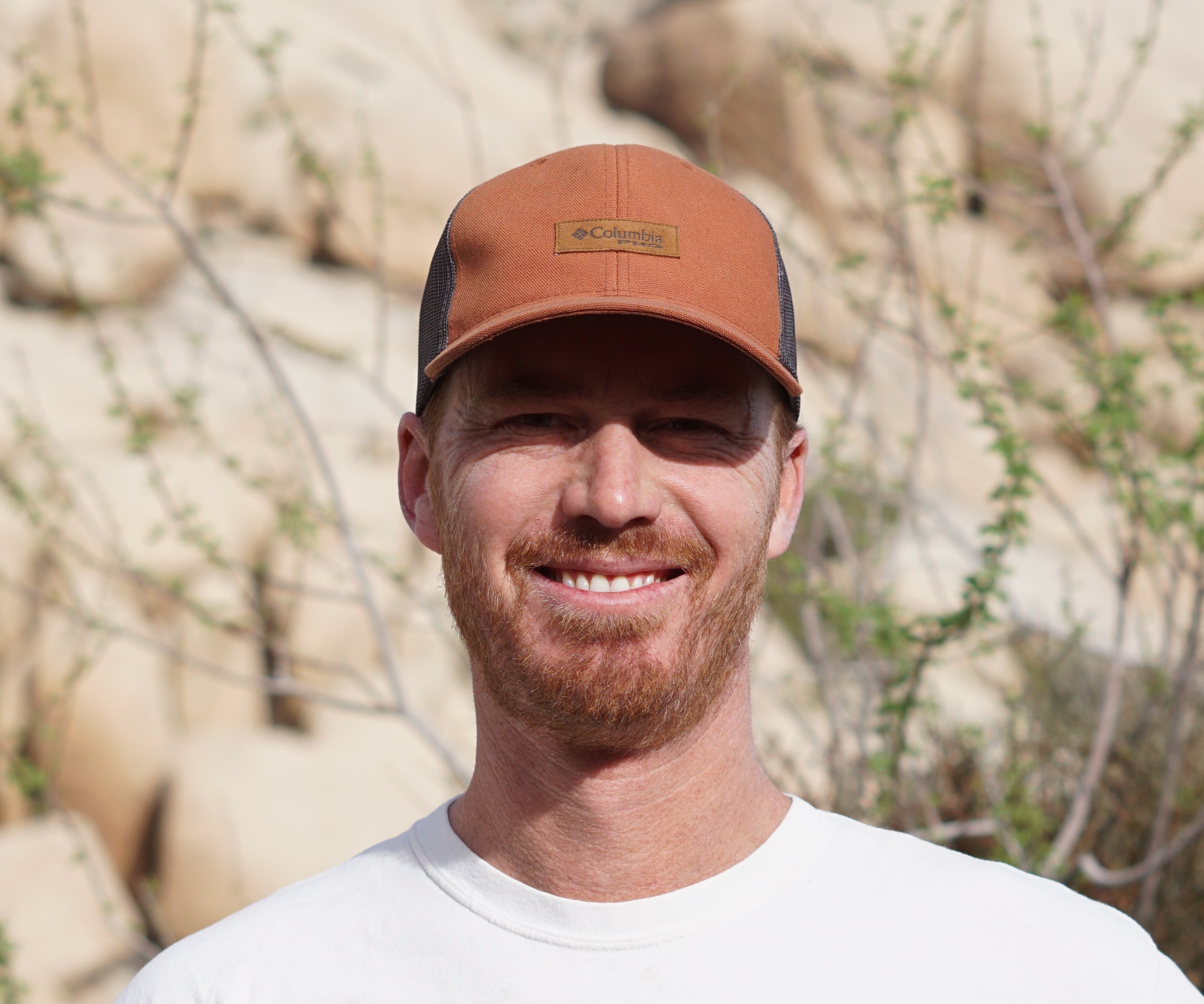
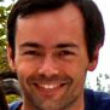 Patrick Robinson Manager, Año Nuevo Island Reserve Director patrick.robinson@ucsc.edu
Patrick Robinson Manager, Año Nuevo Island Reserve Director patrick.robinson@ucsc.edu
I study northern elephant seal behavior and facilitate research and teaching at Año Nuevo Reserve. Website
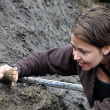 Beth Shapiro Professor, Ecology and Evolutionary Biology bashapir@ucsc.edu
Beth Shapiro Professor, Ecology and Evolutionary Biology bashapir@ucsc.edu
I use DNA and other biomolecules extracted from fossil and living tissue to better understand how the world works. I am particularly interested in learning how past and present environmental changes shape the distribution and abundance of species on our planet. Website
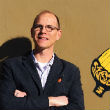 Tsim D. Schneider Assistant Professor, Anthropology tdschnei@ucsc.edu
Tsim D. Schneider Assistant Professor, Anthropology tdschnei@ucsc.edu
I am an archaeologist researching Indigenous-colonial encounters in California and the persistence of Native American mobility and natural resource-collecting in landscapes beyond colonial sites. Website
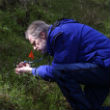 John N Thompson Professor, Ecology and Evolutionary Biology jnthomp@ucsc.edu
John N Thompson Professor, Ecology and Evolutionary Biology jnthomp@ucsc.edu
I study how coevolution shapes webs of interacting species, especially interactions between plants and their pollinators, herbivores, fungal symbionts, and seed dispersers. I am especially interested in how the same interactions coevolve in different ways in different environments, and how environmental change alters interactions both locally and over large regional scales. Website
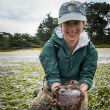 Kerstin Wasson Adjunct Professor, Ecology and Evolutionary Biology kerstin.wasson@gmail.com
Kerstin Wasson Adjunct Professor, Ecology and Evolutionary Biology kerstin.wasson@gmail.com
I conduct ecological restoration and conservation science experiments at Elkhorn Slough, drawing strongly on natural history to develop a full understanding of the ecological systems. I teach community members about
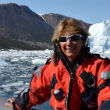 Terrie M. Williams Professor, Ecology and Evolutionary Biology tmwillia@ucsc.edu
Terrie M. Williams Professor, Ecology and Evolutionary Biology tmwillia@ucsc.edu
I am an ecophysiologist that studies large mammals on land and in the seas. I teach Animal Physiology at UCSC. Website
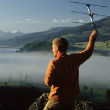 Chris Wilmers Professor, Environmental Studies cwilmers@ucsc.edu
Chris Wilmers Professor, Environmental Studies cwilmers@ucsc.edu
I study and teach classes on the natural history and conservation of wildlife. Runs the Santa Cruz Puma Project. Website
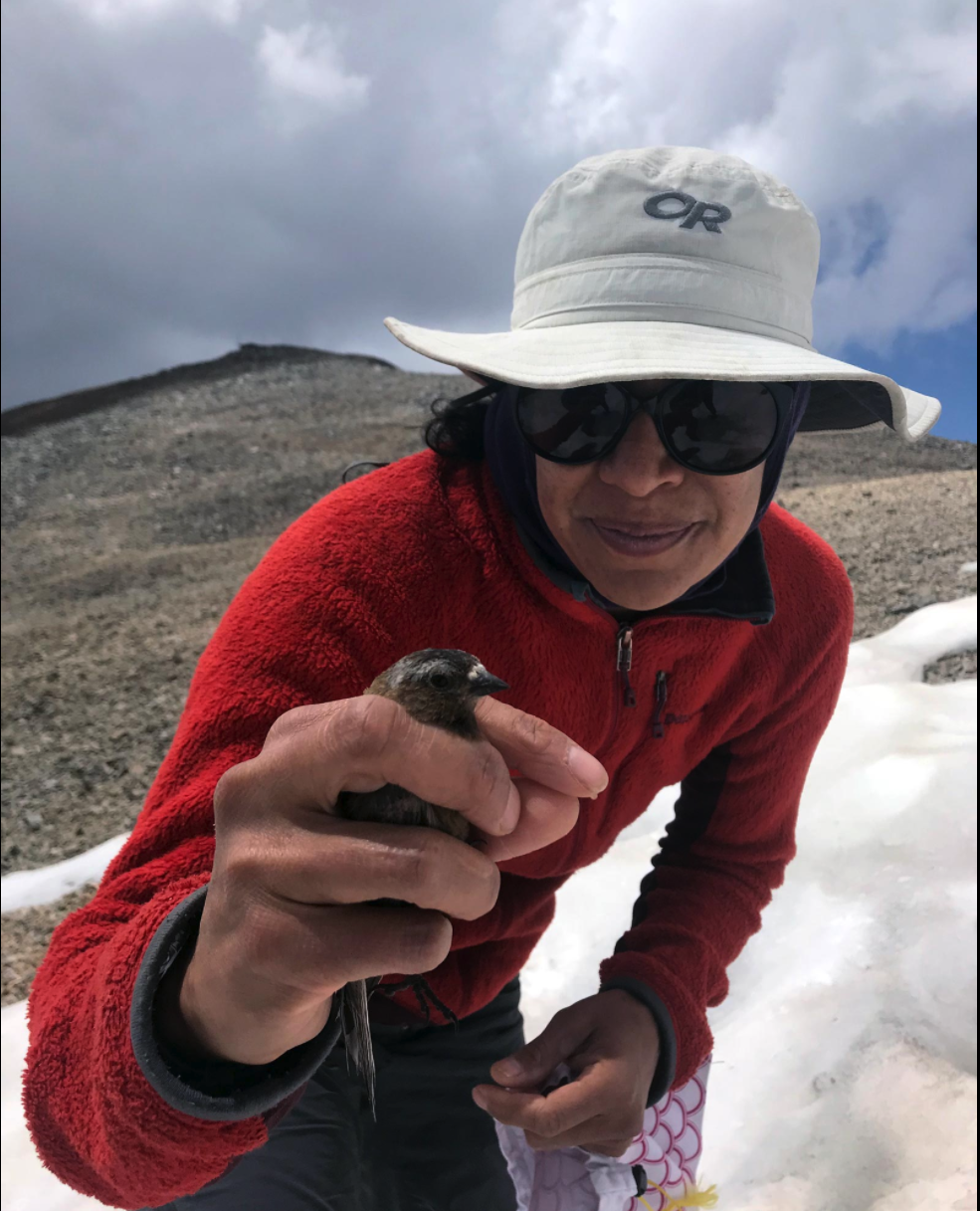 Erika Zavaleta Professor, Ecology and Evolutionary Biology zavaleta@ucsc.edu
Erika Zavaleta Professor, Ecology and Evolutionary Biology zavaleta@ucsc.edu
I study ecological and conservation responses to climate and biodiversity changes, and field-based opportunities as a vehicle for inclusion in science. I also direct the Doris Duke Conservation Scholars Program at UCSC, whose goal is to diversify the U.S. conservation field; and CAMINO, the Center to Advance Mentored, Inquiry-Based Opportunities, to expand inclusive research opportunities for our undergraduates. I teach Ecosystems of California and a variety of research-based field courses. Website
